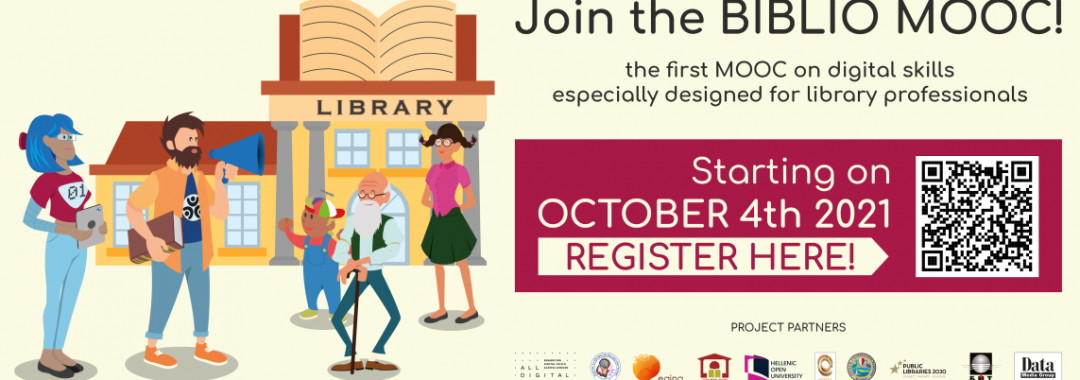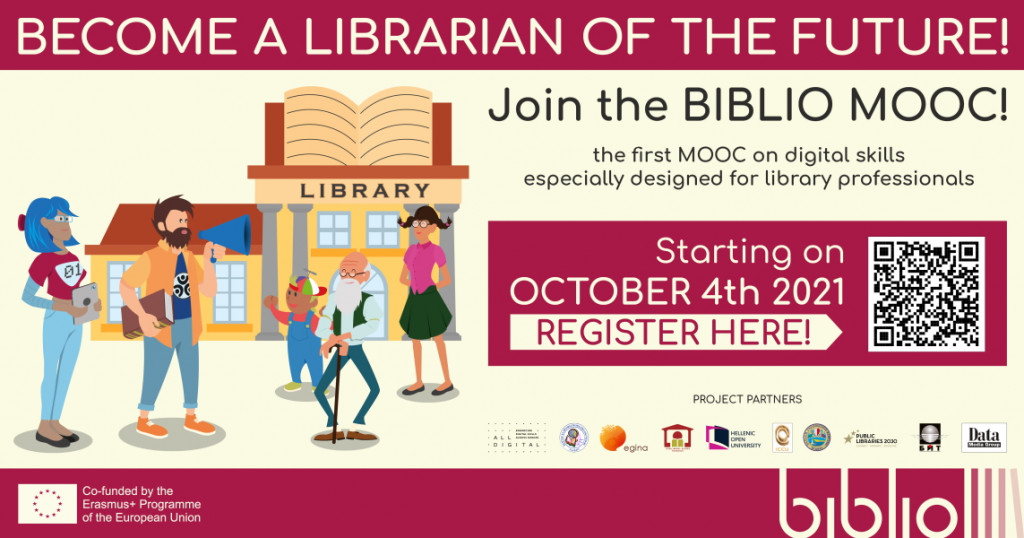 Join us for Social Hackademy International Conference at ALL DIGITAL Summit 2021 (15 October 2021)
Join us for Social Hackademy International Conference at ALL DIGITAL Summit 2021 (15 October 2021)
Social Hackademy – Consortium cordially invites you to the Social Hackademy International Conference that will take place online on 15 October at 9:00 – 15:00.
Register: https://summit-all-digital.b2match.io/
The conference will take place in the framework of 14th ALL DIGITAL Summit (13-15 October 2021) that our project partner ALL DIGITAL is organising online. Three day event titled Digital Skills and Tools for a Better World will in turn focus on the three digital empowerment themes: citizens and competence centres; STE(A)M educators; and young people. Explore the Summit PROGRAMME to learn more about the sessions and speakers.
Day three of the Summit will be entirely dedicated to Social Hackademy project where we will present how to empower young people from disadvantaged backgrounds by fostering digitals skills development through collaborative educational activities and actively include them in solving of societal challenges.
Social Hackademy Methodology supports the implementation of innovative actions and projects that demonstrate how digital and social innovation can mutually benefit for the realization of a “Digital Europe” founded on social value and social investments.
The conference will present essential building blocks of the Social Hackademy Methodology and results of its’ piloting:
- Curriculums for digital skills training courses (Web Design, Visual and Graphic Design, Native Mobile App Development)
- Handbook for educators (trainers, e-facilitators, teachers)
- Evaluations results from more than 120 young people, 15 trainers and 20 civil society organisations that took part in in pilot activities organised in Croatia, France, Greece and Italy
- Best digital solutions developed by young people at Social Hackathons
The conference will also offer food for thought with two interesting keynotes by distinguished speakers from the field of youth policy and innovation and open space for discussion about potential of co-creation methodologies for young people development.
Finally, you will have an opportunity to participate in the mini hack session that will give participants a taste of Social Hackademy Methodology.
Programme of the conference
09:00 – 09:10 Opening of the Social Hackademy Conference
Altheo Valentini, Chair, ALL DIGITAL
Peter Palvolgyi, CEO, ALL DIGITAL
09:10 – 09:50 Keynotes
Biliana Sirakova, EU Youth Coordinator, European Commission, Directorate-General for Education, Youth, Sport and Culture
Michela Magas, Chair of Industry and member of President von der Leyen’s New European Bauhaus High Level Round Table, Commons Foundation
09:50 – 10:30 Social Hackademy and me
Presentations from young people, trainers and civil society organisations representatives that participated in Social Hackademy project’s activities.
10:30 – 10:40 Break
10:40 – 11:10 Co-creation: Empowering young people for the 21st century
Presentation of the Social Hackademy co-creation methodology including digital skills training courses, Handbook for Trainers, Social Hackathon concept and implementation, preliminary evaluation results of piloting Social Hackademy Methodology in Croatia, France, Greece and Italy
Speakers:
Ivan Mušanović, Project Officer, CTC Rijeka
Altheo Valentini, CEO, EGINA
Tiana Zignani, Project Officer, PL2030
11:10 – 12:00 Social Hackademy Award Ceremony
Social Hackademy partners established four Social Hackademy Labs in Croatia, France, Greece and Italy to pilot and test the Social Hackademy Methodology. The activities in the Labs consisted of training courses for young people and Social Hackathons where trainees developed digital solutions for various societal challenges. Four national hackathon winners emerged from the events that compete for the Social Hackademy Award. The session will feature presentations of four teams:
The Coding Gang (winners of Social Hackathon Patras)
Team members: Lazarinis Lefteris, Kostaras Fotis
Zerohunger 2 (winners of Social Hackathon Umbria)
Team members: Andrea Emili, Giacomo Torti, Scharon Torretti, Alberto Fecchi, Alessandro Masci
IT Girls (winners of Social Hackathon Rijeka)
Team members: Marija Siladjev, Lana Prar
Feminist Surge (winners of Social Hackathon Montpeiller)
Team members: Nicolas Prodhomme, Sarah Truffert, Roxane Cabit, Fatima Melkaoui, Julien Pablo and Violeta Rodríguez Porras
12:00 – 13:00 Lunch break
13:00 – 14:00 Panel discussion: From developing a solution to actual implementation
The panel will discuss the potential and critical elements of co-creation methodologies for solving various societal challenges and empowering young people.
Speakers:
Arjana Blazic, DigiEduHack
Ping Kong, Founder, Heritage & Education Consulting GmbH
Salvatore Nigro, CEO, Junior Achievement Europe
Thomas Matthew, Board Member, European Youth Forum
Moderator: Borut Cink, ALL DIGITAL
14:00 – 15:00 Mini Hack session
The session will simulate a part of the Social Hackathon process. Participants will engage in identification of societal challenges that can be addressed by using Social Hackademy Methodology.
15:00 – 15:20 Closing plenary
Altheo Valentini, Chair, ALL DIGITAL
Peter Palvolgyi, CEO, ALL DIGITAL
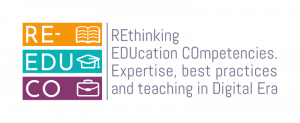 Η ερευνητική ομάδα DAISSy του Ελληνικού Ανοικτού Πανεπιστημίου διοργανώνει διαδικτυακό πρόγραμμα κατάρτισης εκπαιδευτικών στο πλαίσιο του Ευρωπαϊκού έργου RE-EDUCO – Rethinking EDUcation COmpetencies. Expertise, best practices and teaching in digital era. Το έργο RE-EDUCO ενθαρρύνει την παραγωγή, τον πειραματισμό και την ανταλλαγή νέων προσεγγίσεων και μεθόδων εκπαίδευσης με χρήση ψηφιακών εργαλείων και τεχνολογιών. Γεννήθηκε από την ανάγκη παραγωγής και δοκιμής, σε διεθνικό επίπεδο, μιας σειράς μεθοδολογιών και βέλτιστων πρακτικών για τη βελτίωση των δεξιοτήτων των μαθητών και των εκπαιδευτικών και την ενθάρρυνσή τους να υιοθετήσουν την ψηφιακή καινοτομία στην προσωπική και επαγγελματική ζωή τους.
Η ερευνητική ομάδα DAISSy του Ελληνικού Ανοικτού Πανεπιστημίου διοργανώνει διαδικτυακό πρόγραμμα κατάρτισης εκπαιδευτικών στο πλαίσιο του Ευρωπαϊκού έργου RE-EDUCO – Rethinking EDUcation COmpetencies. Expertise, best practices and teaching in digital era. Το έργο RE-EDUCO ενθαρρύνει την παραγωγή, τον πειραματισμό και την ανταλλαγή νέων προσεγγίσεων και μεθόδων εκπαίδευσης με χρήση ψηφιακών εργαλείων και τεχνολογιών. Γεννήθηκε από την ανάγκη παραγωγής και δοκιμής, σε διεθνικό επίπεδο, μιας σειράς μεθοδολογιών και βέλτιστων πρακτικών για τη βελτίωση των δεξιοτήτων των μαθητών και των εκπαιδευτικών και την ενθάρρυνσή τους να υιοθετήσουν την ψηφιακή καινοτομία στην προσωπική και επαγγελματική ζωή τους.
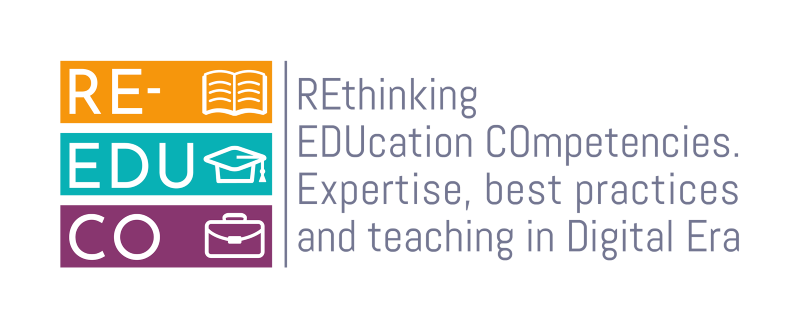
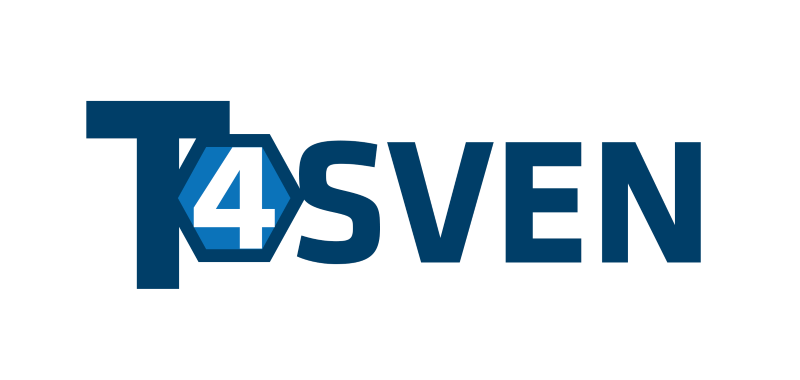
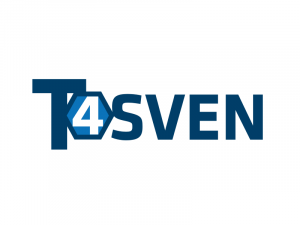
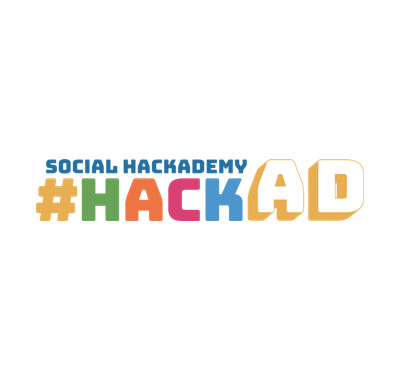

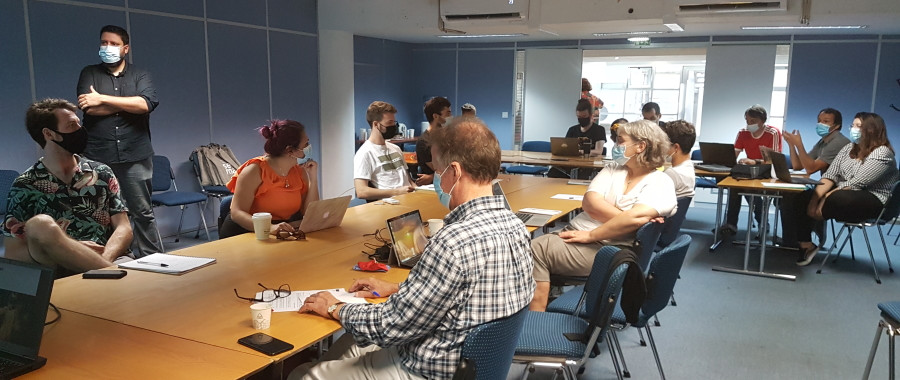
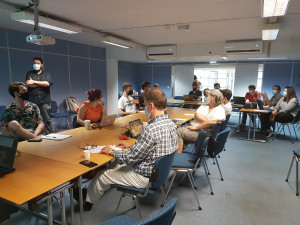
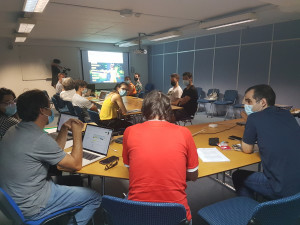
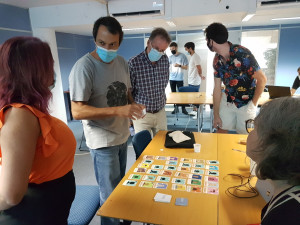
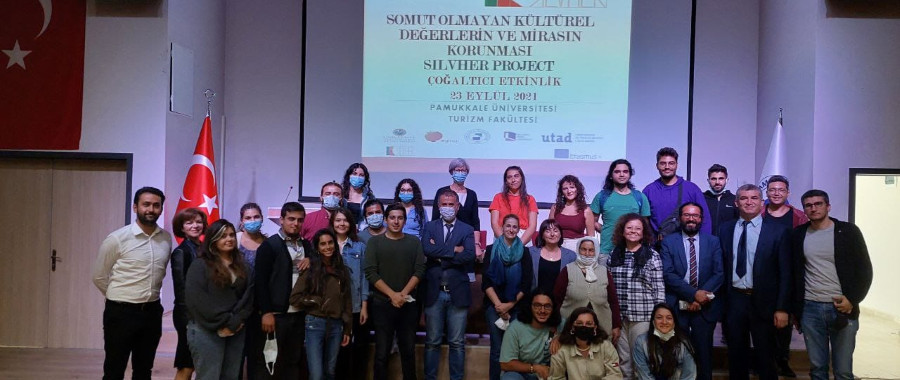
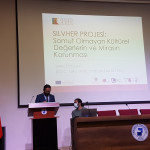
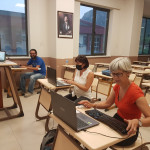
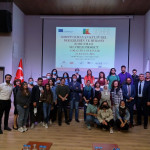
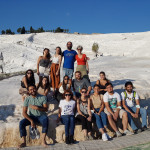
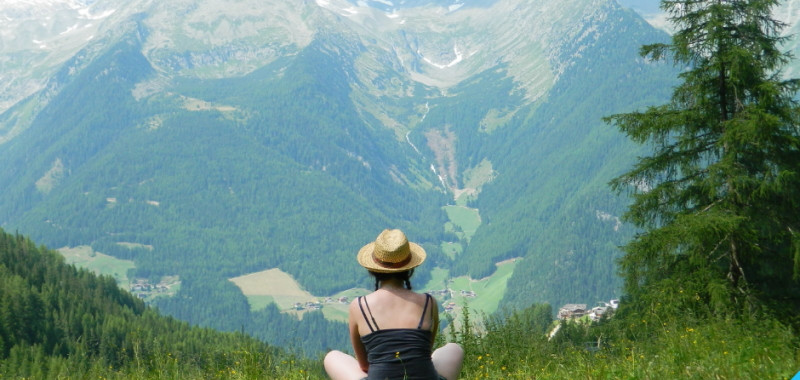

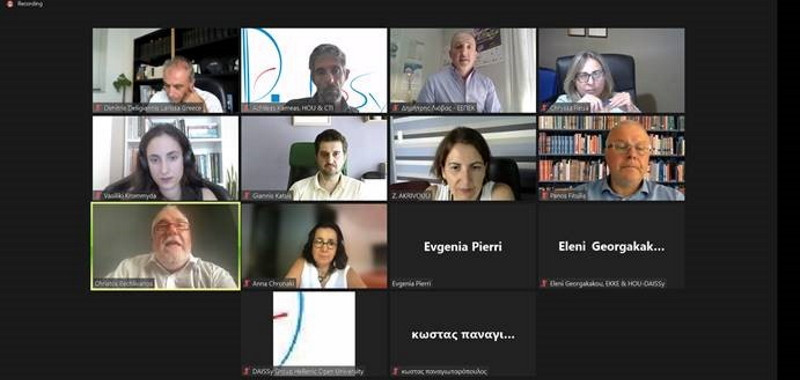
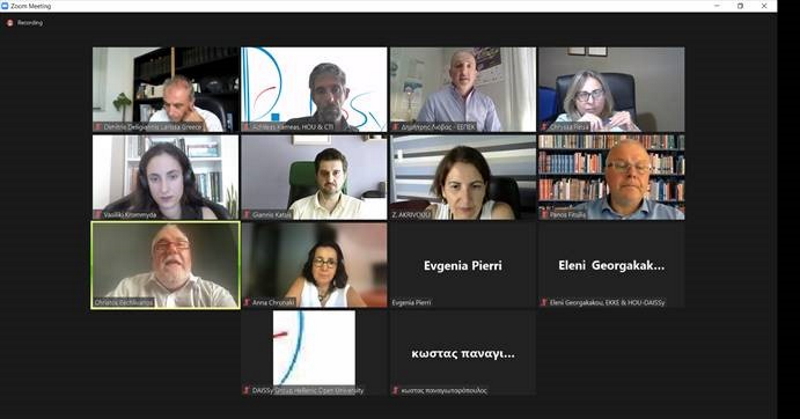
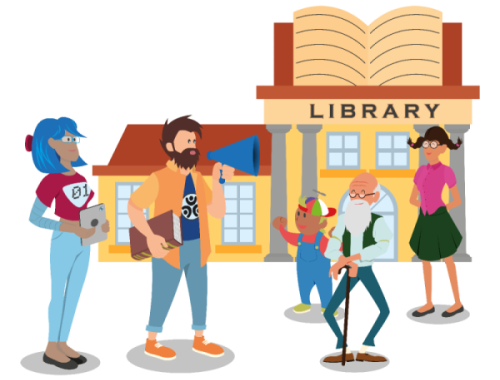
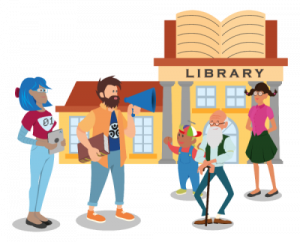 Η
Η 